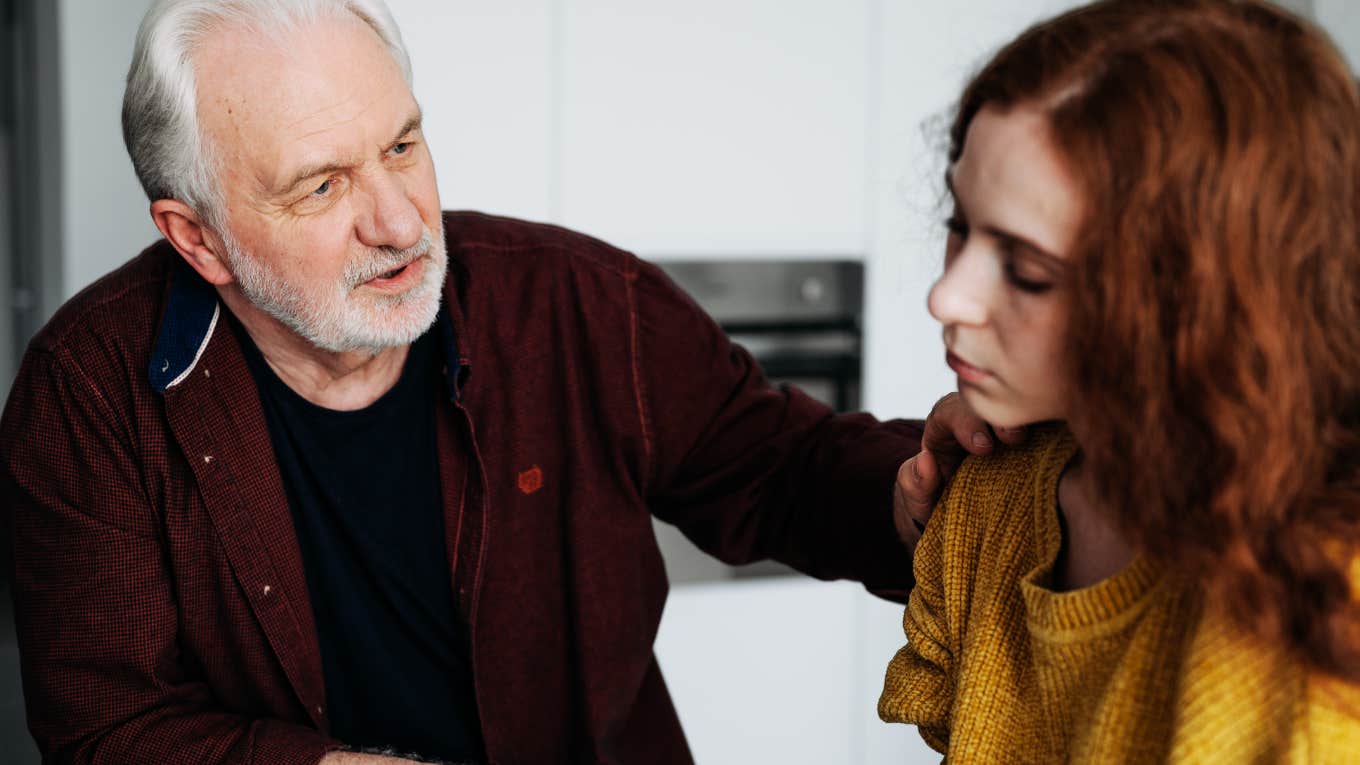I was a little girl, and I never saw my father leave. I woke up one day, and he was gone. He’d reappear occasionally. It was brief, the reconciliations. My parents attempt to save the unsavable.
After that, he drifts in and out of my life. My senior year in high school changed this. It’s another attempt to make it work. It’s uncomfortable.
My dad sips coffee, and my mom pours; it’s unfamiliar. A man invades a home he’s abandoned years earlier. A stranger. A sporadic father with an unreliable history.
It feels unnatural. Not my love for him, that never abandons me, despite his flaws. It’s the two of them together. It doesn’t feel right.
My mom springs his presence on me. It’s unlike her. Many years have passed in his absence. We thrive. Our family heals. She’s independent, robust, happy, a life full of friends and interests. But she’s never gotten over him…he’s never gotten over his drinking.
She discovers he may remarry. It prompts one last try. It ends as the prior attempts have, within a year.
When a parent frequently drifts in and out of their child’s life, it can have a significantly negative impact on the child’s emotional well-being, leading to feelings of insecurity, anxiety, difficulty forming healthy relationships, low self-esteem, and potential behavioral issues, as the child struggles to rely on a consistent parental presence, a 2017 study found.
My father disappears again. Until he lands in the hospital.
Antoni Shkraba | Pexels
As siblings, we are split. Some of us no longer speak to him, and some do. It’s an individual choice we choose to respect. I make my way to the hospital. The doctor urges me to step into the hall.
“How old are you?” he asks.
“I’m 19,” I say.
“Your father has cancer,” he says.
No words exit my mouth. No questions. I stand there stunned. The man who long ago abandoned me may soon be permanently gone. Our story has been written.
My dad rallies. He defies his odds, and the treatments go well. I visited him at his apartment.
I’ve been there once before. I brought my then-boyfriend (later my husband) to meet him. We sit on the couch. My dad retrieves a shoe box. He places two items in my hand. My baby bracelet from the day I was born and a card I’d made for him as a child.
 VGstockstudio | Shutterstock
VGstockstudio | Shutterstock
It reads, “Dad, I love you more than this horse weighs.” It’s from one of their reconciliations during elementary school. I fight back uncharacteristic emotion. I don’t let my father elicit tears.
I no longer allow him that privilege. Still, a lump finds its way to my throat. There’ve been too many jobs and addresses to count. How has he managed to hold onto these things? On this particular visit, something is on his mind.
“I’m going to get remarried,” my dad says. “I’m lonely. But I’ve never loved anyone the way I loved your mother.”
His words surprise me. My dad is flawed. But he’s got the gift of an open and spoken heart. He’s a gentle guy. I’m not the only one who thinks this. My mom’s brother would say, “You’d be hard-pressed to find someone who didn’t like Bill.”
My father isn’t the stereotypical alcoholic. He isn’t what people think of when they hear that word. He’s a lover, not a fighter. He’s not abusive. He’s a lampshade alcoholic. He’s the life of the party. A man unable to overcome a terrible disease. It takes him down. It takes our family down until we free ourselves from heartbreak.
My mother bears the burden. She raises us emotionally, financially, spiritually, and physically. He signs the house over to her to make sure we have a home. It’s all he’s capable of. He can’t hold a job.
I digest his comment. My dad utters beauty where sadness has stood.
I believe my dad’s words are a gift. I’m from two people with undying love.
It’s my cup half full. It’s the positive I hang onto. I gleam something good from bad. With it, I erase a portion of the heartache my dad imposed over the years.
I tell myself: Only a love story writes that soft an ending.
My parents’ relationship is unhealthy. I know this. It’s obvious. My father has a drinking problem. I understand this. But I’m young. I need to lessen my heartache. It makes my story, my parents’ story, less heartbreaking.
Today, I know something else. The reality of some heartbreak. What seemed like a gift was unhealthily camouflaged. It wasn’t only my parent’s marriage; it was their inability to heal, together or individually. I’ve spent years devoted to counseling and research on love and relationships.
 Elina Fairytale | Pexels
Elina Fairytale | Pexels
My father couldn’t heal. My mom did. Yet she alternately remained an enabler and codependent.
It wasn’t a love story. It was a continuation of heartache. It was the hamster wheel of an unhealthy relationship, again and again. The young me needed that cup half full. She needed that type of peace.
I’m not willing to throw my mom under the bus. She was amazing. She was a single mother. She lived without my father for years. She put herself through school while working two jobs. She became an accountant. She was successful. She overcame the odds.
She’s the reason we are who we are. She was our rock and our foundation. Yet several times, she allowed him back into her life. It was a young love she’d never fully recovered from. Counseling wasn’t common in those days. Problems stayed hidden behind four walls.
She did the best she could. She didn’t have the tools to overcome perpetuating her heartbreak. If she had, she would’ve developed the boundaries and self-protective instincts necessary to prevent it. She would have recognized the part she played in her heartache.
Research on self-protective instincts leading to leaving a relationship indicates that when individuals perceive a threat or significant harm within a partnership, they may activate automatic self-preservation mechanisms, prompting them to distance themselves or end the relationship altogether, often driven by a desire to protect their emotional well-being and sense of self. A 2012 study explained that this could manifest through behaviors like withdrawing, setting boundaries, or initiating a breakup, significantly when trust is compromised or negative patterns persist.
I had that benefit. I was fortunate to have that counseling and research. It allowed me to understand my role with a different type of unpredictable personality. A man who would emotionally abandon me until I developed the boundaries and self-protective instincts to leave him.
The diagnosed narcissist I married. My heartbreak the second time around.
Colleen Sheehy Orme is a national relationship columnist, journalist, and former business columnist. She writes bout love, life, relationships, family, parenting, divorce, and narcissism.





